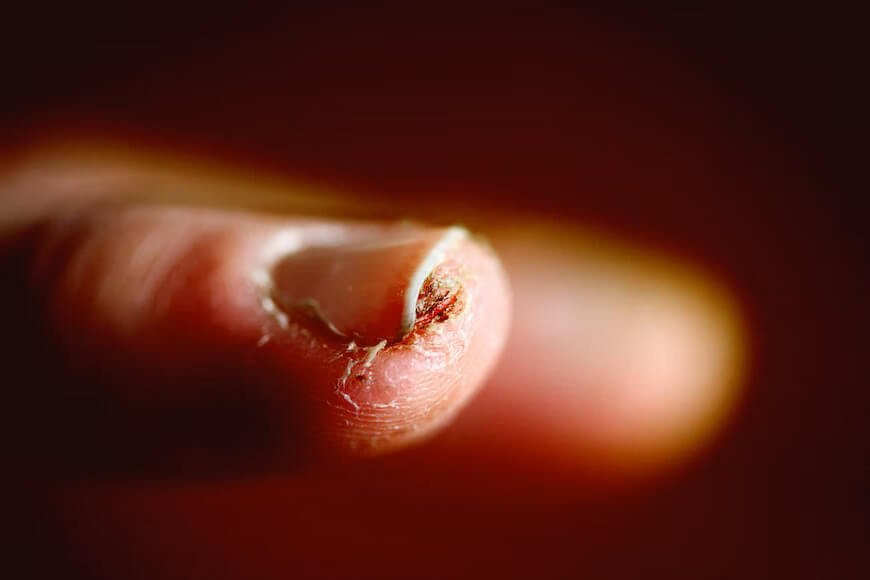Scabies and eczema are two prevalent skin conditions that can cause discomfort and embarrassment. Both scabies and eczema affect the same areas of the body, but they have some crucial differences that should be noted. This article will discuss the main differences between scabies and eczema to help you understand which condition affects you or your loved one.
What are scabies and eczema?
Before diving into the key differences between scabies and eczema, it’s essential to first understand each condition. Scabies is an easily spread skin infestation caused by a tiny mite called Sarcoptes scabiei var hominis. The mites burrow into the upper layers of the skin and cause intense itching, sometimes accompanied by a rash. Eczema is a chronic skin condition that causes inflammation, redness and irritation along with itching and flaking of the skin. It usually appears on areas that bend, like the elbows, behind knees or wrist creases.
Scabies vs. Eczema: Differences
Let’s take a look at the main differences between scabies vs eczema.
Appearance
One of the main differences between scabies and eczema is their appearance. Scabies often appears as a rash made up of red bumps or blisters, while eczema is characterized by dry, reddened patches of skin that can be either itchy or not itchy depending on severity.
Infestation
Scabies is caused by a mite infestation, while eczema is not infectious or contagious.
Cause
The cause of scabies is due to an external source (the mites), while the cause of eczema is often unknown, though genetics and environmental factors may play a role.
Spread
Scabies can be spread through direct contact with someone who has them, while eczema cannot be spread from person to person.
Location
Scabies usually affects areas between fingers and toes, around the waist and groin area, elbows and armpits. In contrast, eczema typically appears on areas that bend, like elbows, behind knees or wrist creases.
Itching
Itching is usually more intense with scabies than it is with eczema.
Treatment
Scabies is treated with a topical cream or lotion, while eczema can require a combination of treatment options such as creams, ointments, oral medications and lifestyle changes to manage symptoms.
Duration
Scabies can last weeks or months without treatment, whereas eczema flares tend to come and go due to triggers.
Severity
The severity of scabies and eczema varies from person to person, depending on their health condition.
Appearance after treatment
After treatment for scabies, the bumps and blisters may remain for a few days or weeks but should eventually disappear. On the other hand, eczema tends to remain even after treatment and can be managed with ongoing lifestyle changes and medications.
Scarring
Scabies usually does not leave any scars behind, while eczema has been known to cause scarring in some cases.
Allergies
People with scabies are not usually allergic to anything; however, those with eczema often experience allergic reactions to certain substances such as dust mites, pollen and pet dander.
Stress
Stress can worsen eczema symptoms, whereas it does not affect scabies symptoms.
Temperature
Eczema symptoms worsen with warmer temperatures, while scabies is less affected by temperature changes.
Secondary infections
Scabies can cause secondary bacterial infections due to scratching, while eczema does not usually lead to infection unless the skin is broken and exposed to bacteria or fungi.
What are the treatment options for eczema?
While there is no cure for eczema, a variety of treatment options can help manage the symptoms. Topical creams and ointments are often used to hydrate the skin and relieve itching. Steroid injections may also be used to reduce inflammation. In severe cases, oral immunosuppressants may be prescribed. Phototherapy, which involves exposure to ultraviolet light, can also treat eczema.
Ultimately, the best treatment plan for eczema will vary from person to person. However, with the help of a qualified dermatologist, it is possible to find a treatment that effectively manages symptoms and improves the quality of life.
What are the treatment options for scabies?
Treatment for scabies typically involves a prescription cream or lotion that kills the mites. The cream is usually applied to the entire body from the neck down and left on for 8-12 hours before being washed off. In some cases, oral medication may also be prescribed. Once the mites are killed, the itching and other symptoms will go away. However, it is essential to finish the entire course of treatment to prevent the mites from returning.
With that said
Scabies and eczema are both common skin conditions that can be confused due to their similar appearance; however, critical distinctions between them should be considered when determining a diagnosis. By understanding the main differences between scabies and eczema discussed above, you will better understand what condition you or your loved one may be suffering from. If you have any doubts or questions, you must consult a qualified healthcare professional for the best diagnosis and treatment plan.
The effectiveness of both scabies and eczema treatments will vary from person to person. However, by understanding the critical differences between the two conditions, you can be more informed about which treatment option may be most suitable for your individual needs. Whether you’re dealing with scabies or eczema, seeking out the help of a qualified healthcare provider is essential to get the best results. With proper care and management, it is possible to reduce symptoms and improve quality of life despite these common skin conditions.

